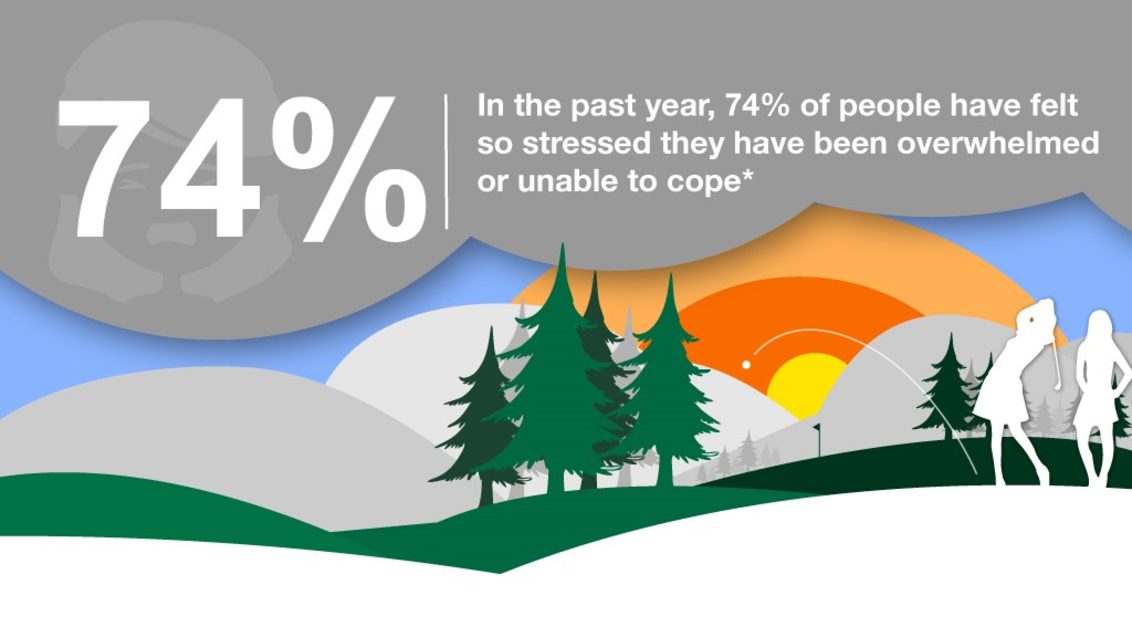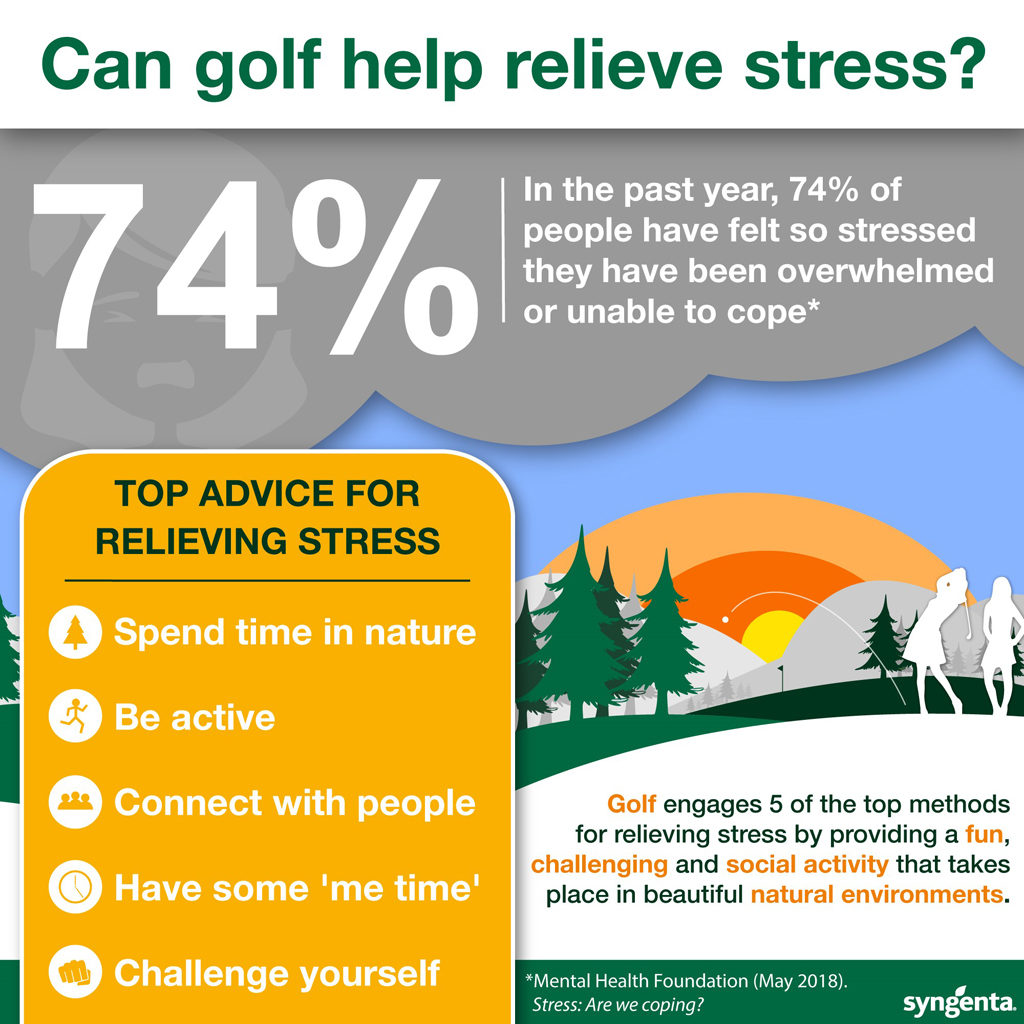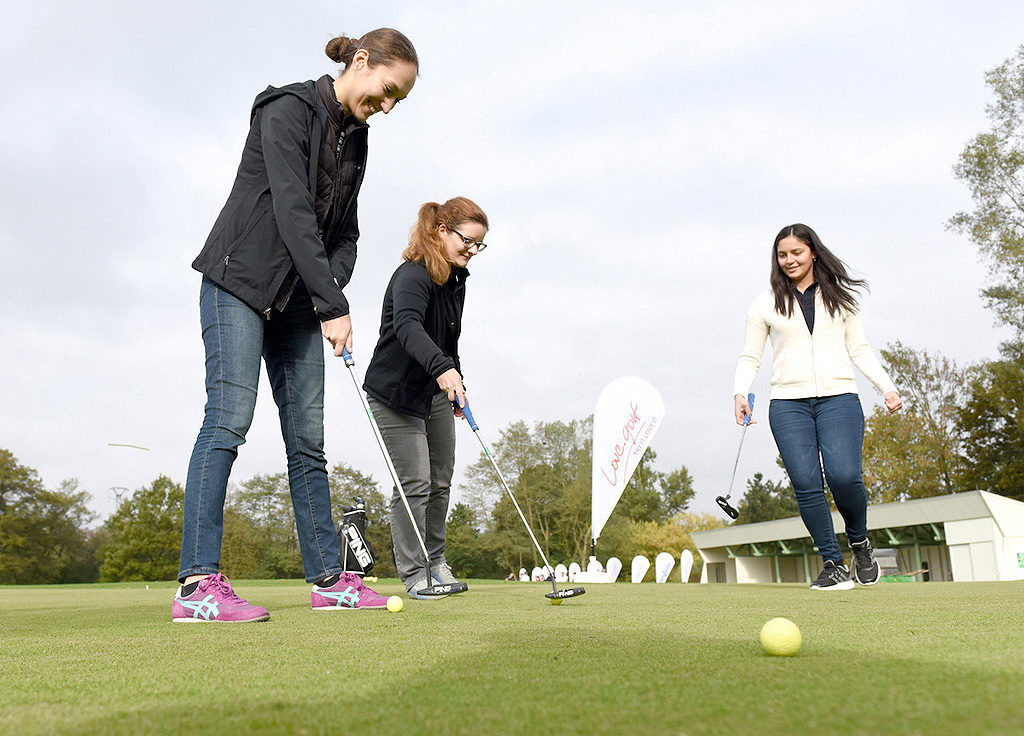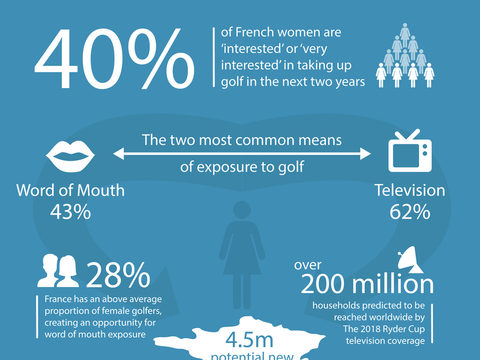Can Golf Help Relieve Stress?

In May of 2018 the Mental Health Foundation turned a powerful spotlight on stress for Mental Health Week, commissioning the largest known study of stress levels in the UK.
The study revealed that in the past year 74% of people have felt so stressed they have been overwhelmed or unable to cope, and almost 10% of respondents said they were stressed all of the time. While global stress levels are not easily discerned, a Gallup poll in the USA showed a similar trend, with only 17% of respondents saying that they rarely feel stressed.

The effects of long-term stress on the human body are well known and documented, negatively impacting both our mental and physical health in a myriad of ways.
So with a clear need to find and engage methods of relieving stress, the question for the golf industry is this: can the unique nature of golf as a sport and hobby be an effective way to relieve the stresses of modern life?
The Case for Golf
While the golf industry is currently putting emphasis on the benefits of golf for physical fitness, there is a strong case that the game delivers even more advantages for our mental health.
Listed below are five of the top methods prescribed by many organisations around the world to combat stress, including the UK’s National Health Service and the USA’s American Heart Association:
- Spend time in natural environments
- Be active
- Connect with people
- Set aside some ‘me time’
- Challenge yourself
Playing the game of golf engages, in a single activity, the five recommendations listed above for relieving stress by providing a fun, challenging and social activity that takes place in beautiful and serene natural environments.
Professor Jenny Roe, environmental psychologist and Director of the Center for Design & Health, University of Virginia, spoke to us about the benefits of golf for physical and mental health.
“Golf is one way of capturing a regular ‘dose’ of green space to boost your psychological wellbeing as well as your physical health,” she said.
“There’s a huge wealth of evidence, using robust, scientific methods, to show the benefits of ‘green exercise’ – exercise in the natural outdoors – as compared to, say, exercise in the gym or indoors.”
A number of studies have demonstrated how spending time in natural environments produces a wide range of physical and mental benefits, including lowering heart rates, blood pressure and inflammation, as well as reducing cortisol (the "stress hormone”) levels.
“Contact with nature allows us to recover from brain fatigue, reduces our stress levels and improves our mood."
Professor Roe went on to say: "In turn, improved mood is linked to what’s called the ‘broaden and build’ hypothesis, with an increased capacity for creative thought and cognitive flexibility that can – potentially – lead to new thought-action repertoires on and off the golf course, and improved performance.”
Focusing on Women
Interestingly, research also shows that more women tend to report stress than men, with one recent poll demonstrating an 89% to 76% difference.

From Syngenta’s worldwide research report The Global Economic Value of Increased Female Participation in Golf, and involvement in the pioneering love.golf initiative, we know that the very things that attract women to the game align with many of the stress relief factors listed above.
Five of the top factors that piqued women’s interest in golf were:
- Being outdoors
- Relaxation or stress relief
- It presents a mental challenge
- Spending time with family or friends
- It presents a physical challenge
These studies clearly reveal that, given the right messaging, the golf industry has an opportunity to reach out to women and present golf not just as a fun hobby, but as something substantial and rewarding to their overall wellness.
Professor Jenny Roe is an environmental psychologist who explores how our interactions with the world shape our health, wellbeing and behaviours. She specializes in understanding how access to restorative environments in our cities create and sustain our health and wellbeing. | 
|





